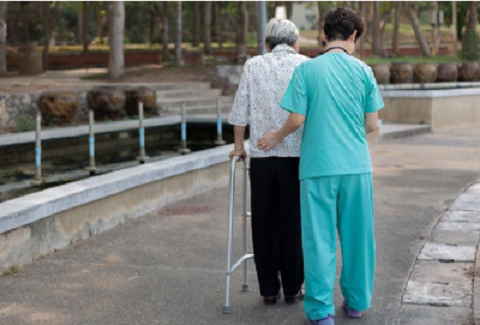“There is a wide variety of chronic and long-term illnesses – such as Lyme disease, Crohn’s disease, or Charcot’s disease – which cause physical disorders that are often disabling, impacting on society’s perception of patients and preventing them from fully enjoying their rights and excluding them,” said Martine Wonner (France, ADLE), at the opening of a parliamentary hearing. Ms Wonner, who is currently preparing a report on “Discrimination against persons dealing with chronic and long-term illness”, wished to extend the scope of this report to stigmatisation against people suffering from disorders linked to psychiatric illness sometimes leading to exclusion. “These issues are particularly topical in the context of COVID-19,” she added, pointing out that people could organise themselves into associations of patients who are victims of the consequences of Covid-19.
Three experts shared their thoughts on these challenges, as well as recommendations for policymakers, from the perspective of research, patients and unions.
Matilde Leonardi – Professor of Neurology, Public Health and Disability at the Catholic University of Rome and Milan, Director of the COMA Research Centre and member of the Neurological Institute Carlo Besta IRCCS Foundation (Milan), stressed that “more than 50% of the world lived with chronic disease”. She presented the Pathways Research Project, working on the definition of inclusive labour markets for persons with chronic disease (PwCDs), supported by the European Commission, which resulted in seven recommendations, including raising awareness about the role of employment for these persons, strengthening EU-level policies, and ensuring adequate national legislation. She said that stigma, discrimination and the lack of awareness were factors affecting negatively the effectiveness of strategies aiming to improve work reintegration of PwCDs.
“In many EU-countries, she added, these persons can receive support in employment if their condition is recognised as a “disability”. Such frameworks, however, create an “invisible” category of working-age PwCDs that are “not disabled” enough to get the benefits, and even though they face obstacles to participate in the labour market, they are not eligible for the existing national provisions. She highlighted the need of effective national policies focusing on the right of every person to work in sustainable environment.
She also presented the European project Chrodis Plus, in which 42 partners representing 21 European countries collaborate to identify good practices with a view to improve access to work for PwCDs and promote inclusiveness in the workplace. “You cannot change the disease, but you can change the environment,” she said.
“People who are working and suffering from long-term illness clearly suffer discrimination, as they are often seen as a burden, and the pandemic has only exacerbated this discrimination,” said Kawaldip Sehmi of the International Alliance of Patients’ Organisations (IAPO). The right to short-time work is certainly a protection, but it is relative when certain precautions are no longer accessible. For many, public transport is no longer safe enough. Parents of sick children face direct discrimination. Classified as “too vulnerable”, children are deprived of school while parents are unable to go to work. Mr Sehmi also cites the increase in stress which is not taken into account; no legal framework exists to defend these employees.
“There has always been ‘tolerance’ for chronic and long-term illnesses, but never ‘acceptance’ of the sick,” Mr Sehmi said.
“There is no universal definition of chronic or long-term illnesses, which leaves a lot of room for interpretation. This is the reason why the legislation differs between EU member States,” said Ignacio Doreste, adviser to the European Trade Union Confederation, in charge of the ‘Health and Safety at Work’ dossier. “We believe that any chronic and long-term illness should be equivalent to disability, invalidity,” he added.
He referred to the coexistence of handicaps that lead to double discrimination against groups already considered fragile. In terms of legal protection, Directive 2000/78/EC establishes a general framework for “equal treatment at work”. In order to integrate disabled workers, Article 5 of the Directive requires that they should operate within an “appropriate and reasonable framework”, but the European legal framework is not sufficiently precise, particularly with regard to the financing of this framework. The Commission has started consultations to revise this directive.
The general principle of prevention should also be used, in particular that of the European directive on safety and health at work. The employer must ensure the safety and health of “all workers’ in the occupational field. “This provision could also be used to cover chronic or long-term illness,” concluded Mr Doreste.
PACE

























































